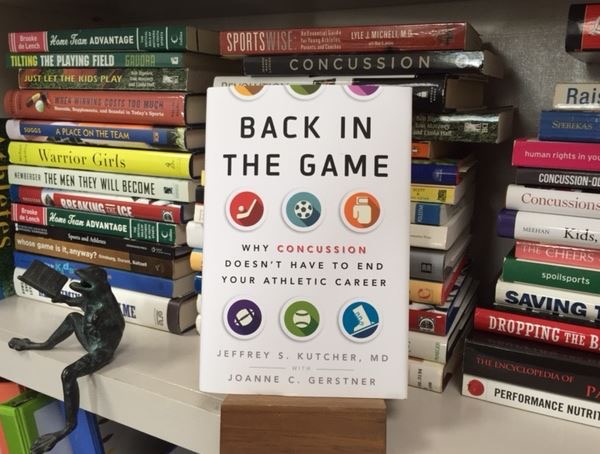“Back in the Game”: A Concussion Book That Stands Out In Crowded Field
The result, unfortunately, is that alleged “truths” are established – whether it be that playing football causes dementia or causes CTE, or that CTE causes players to commit suicide – which are not, at least not yet, supported by actual science in peer-reviewed studies or published in the medical literature. Instead, they are “supported” (if that’s even the right word) by something much less reliable, in the case of the 2008 Times article, by a phone survey commissioned by the NFL.
As Kutcher correctly observes, “whether in the media or in the political process, medical science very typically does not make for good storytelling. … There must be a highly charged and emotional narrative attached to any research or science for it to significantly capture the public’s attention.” The problem in the case of sports and brain trauma is that, as I know all too well, the public has been mostly been hearing the last decade, not from respected scientists like Kutcher, but from those who have the “loudest megaphones and get in front of the most cameras.” That they have little scientific knowledge or training, whether their message is based on facts or not, has, as he points out, often been beside the point: when they “take to social media in force to put out their ideas – mostly unchallenged- about their own personal conclusions” the result is “critical thought takes a backseat while emotional narratives play the starring role.”
As distressing as this all may be, and despite the troubling concussion = dementia narrative that has gained so much traction in recent years from anecdotal reports spread in the media without any context, Kutcher isn’t giving up hope that, somehow, the public will come to understand that, just because something is in print or broadcast doesn’t make it the truth, and hoping that journalists themselves will begin to “question assumptions, [and] dig a little harder to understand the more difficult concepts,” so as to be able to “craft a clear and nuanced message for public consumption.” I would like to share Kutcher’s optimism, but, after so many years fighting a rearguard battle for truthful, objective reporting about head injuries in sports, I’m afraid I’m not as sanguine about the chances of that ever happening.
In the meantime, though, one thing is clear: thoughtful, informative, factually accurate books like Back in the Game, books which help all those with a stake in sports to carefully assess the risks of sports against its benefits; books which see critical thought and a comprehensive approach as the keys to maximizing brain health over a lifetime, books which see it as a responsibility which all sports stakeholders must share as a team, will always have a honored place on my bookshelf.
Related articles & blogs
Sports Concussion Research, CTE, and the Media: Can The Disconnect Ever Be Repaired?
“Head Games”: Not The Movie I Was Hoping To See
“The Smartest Team”: Staking Out The Sensible Middle In The Polarized Debate About Football
Why I’m Not A Football Apologist Or Anti-Football Zealot But A Pro-Safety Realist
My Appearance on ESPN’s “Outside The Lines”: The Rest of The Story



